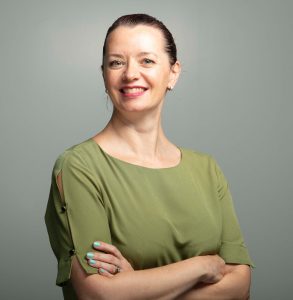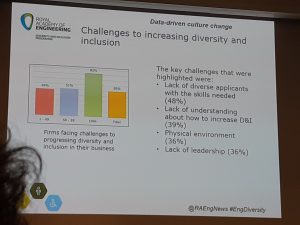Dr Sara Walker, a keen advocate of Equality, Diversity and Inclusion (EDI), discusses the EDI imbalances in engineering and how the Supergen Energy Networks Hub hopes to address it.
About the Author:
Dr Sara Walker is an Assistant Director and Co-Investigator  of the £5 million EPSRC funded Supergen Energy Networks Hub. Additionally she is also Associate Director and Co-Investigator at CESI. Her research focus is regarding renewable energy technology and transitions to low carbon systems, with a particular focus on policy and building scale solutions. She is Director of Expertise for Infrastructure at the School of Engineering at Newcastle University.
of the £5 million EPSRC funded Supergen Energy Networks Hub. Additionally she is also Associate Director and Co-Investigator at CESI. Her research focus is regarding renewable energy technology and transitions to low carbon systems, with a particular focus on policy and building scale solutions. She is Director of Expertise for Infrastructure at the School of Engineering at Newcastle University.
Contact details: sara.walker@ncl.ac.uk Dr Sara Walker’s Profile
Equality, Diversity and Inclusion in Engineering
I recently attended and event called ‘Data Driven Culture Change’ at the Royal Academy of Engineering where the startling results of an industry survey showed:
- 11% of surveyed companies had a generic EDI Policy, and 1% has a specific EDI Plan
- 4% of surveyed companies had some way of measuring EDI
- 42% of surveyed companies planned general activities around diversity and inclusion.
That means those activities typically aren’t aligned to any strategic plan and the impact of activities aren’t being measured, in the majority of cases.
The Royal Academy of Engineering has a vision to address the engineering skills and diversity challenge. The scale of the diversity issue is being reported more frequently in the mainstream press, particularly recently with the gender pay gap reporting hitting headlines:
- 2018 Gender Paygap for the UK is 8.6% (in favour of males)
- 12% of professional engineers and technicians are female
- 8% of the engineering workforce are BAME
- There is insufficient data on (dis)Abled, LGBT and socio-economic background in engineering
Across the energy sector, Powerful Women report a similarly disappointing picture for the top 80 energy companies.
- Women occupy only 13% of board seats
- Women make up 6% of executive board seats
- 86% have no female Executive Director
- Half have no women on their Board
The Supergen Energy Networks Hub wishes to better understand EDI for the community, to develop and implement good practice in EDI in the way we engage with the community, and to create a sense of belonging for all regardless of background.
Why?
Well firstly because it is the right thing to do. Discrimination is not something we wish to support. We intend to engage widely in a way which is inclusive to all.
And secondly, because it is good for research. Diverse teams outperform homogenous teams for creativity and innovation, which is just what we are looking for in order to tackle the thorny issue of future energy networks.
Thirdly, it makes business sense. There is strong evidence that diversity in the workplace results in better financial performance (Powerful Women report companies in the top quartile for gender diversity outperform those in the bottom quartile by 35%).
Our approach to EDI for the Supergen Energy Networks Hub is:
- To initially audit EDI statistics of the community who we engage with
- To ask the community where their needs lie with regards to EDI
- To investigate and implement best practice in our own activities around events, recruitment, flexible funding and the many other ways in which we interact with our community
- To agree an action plan for the 4 year duration of the Hub.
- To continually monitor EDI, to evaluate the impact of the Action Plan, and to update it as required.
Complete our first EDI audit here.
Get in touch if you would like more information at supergenEN@newcastle.ac.uk